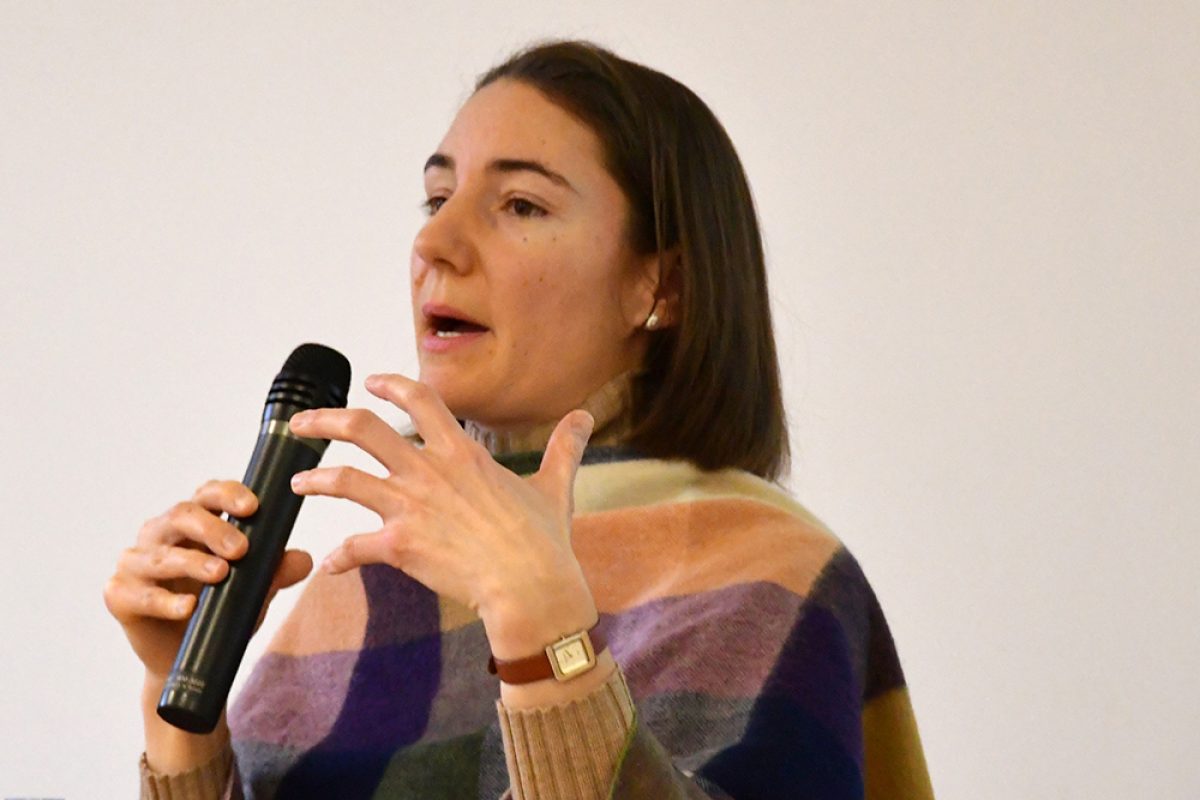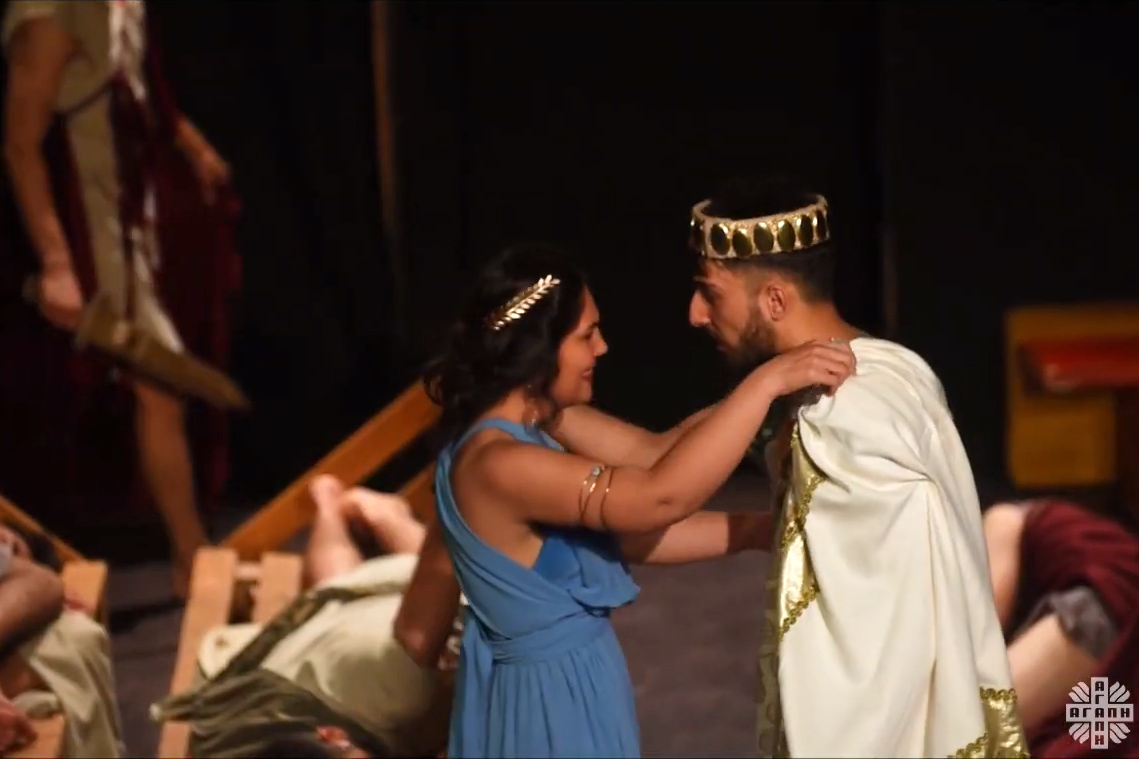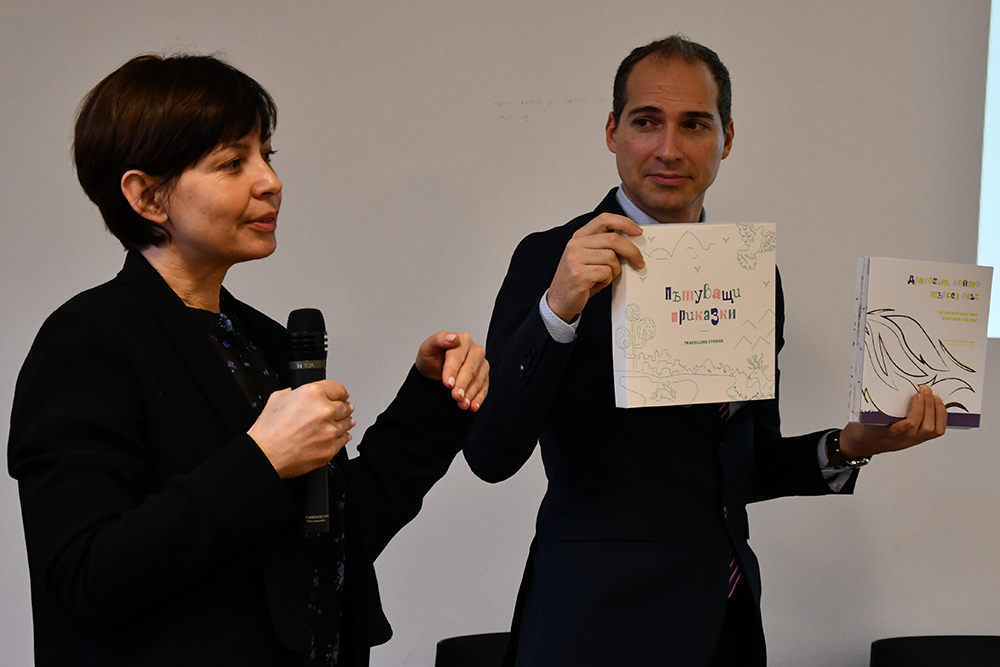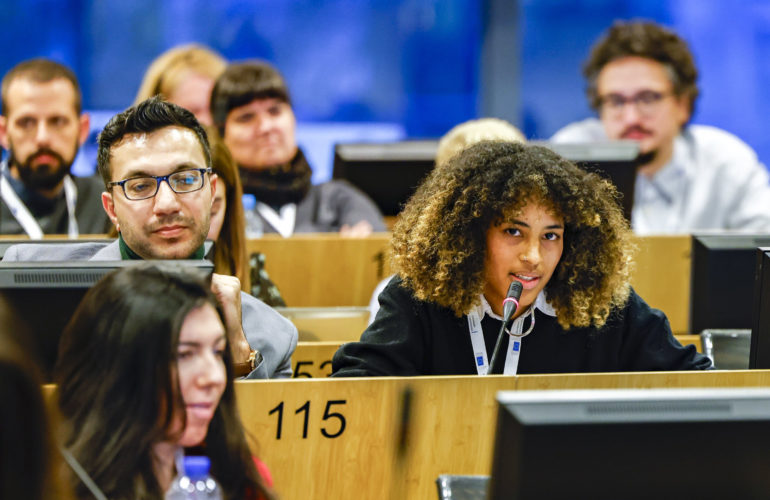How Faith-Based Organizations Can Create a Culture of Encounter with People Seeking Refuge

From theater plays performed by refugees to publishing fairy tales written by refugees to creating support groups for asylum-seekers, faith-based organizations are engaged in many different ways to create a culture of encounter for people seeking refuge.
On 16 December, on the eve of the first-ever Global Refugee Forum, faith-based organizations met in Geneva to discuss how to best assist refugees and support their integration into host communities.
During the meeting, International Catholic Migration Commission Policy Officer Mantalin Kyrou presented the pledge at the Forum: a promise to assist the UN Refugee Agency (UNHCR) and governments with refugee resettlement.
Ms. Kyrou highlighted the magnitude of needs in 2019: 1.4 million refugees were in need of resettlement, but only 55,000 were resettled to third countries.
By providing experts that can be deployed worldwide on short notice, ICMC facilitates resettlement activities throughout the world. These experts, part of the ICMC-UNHCR Deployment Scheme roster of over 500 professionals, are specialized in resettlement, child protection, and gender-based violence protection and prevention. They work to identify refugees who are most at risk and for whom resettlement is the only durable solution.
ACT Alliance’s Migration and Displacement Program Manager Christian Wolfe emphasized the importance of increasing resettlement and complementary admission pathways for refugees.
Mr. Wolfe also underlined the need for better planning to find local solutions in countries that host large numbers of refugees. Although this is an important part of the Forum’s objectives, few details have been set forth as to how to proceed so that host countries have sufficient support when taking responsibility for these refugees.
Aloysius John, Secretary General of Caritas Internationalis, referred to Pope Francis’ 2017 Ted Talk. In that message, the Holy Father put responsibility for the future not only in the hands of politicians, leaders, and companies, but, first and foremost, in the actions of individuals from the grassroots, who recognize each other’s dignity and work to create spaces for encounter.
Tearing down barriers to integration

Two examples of such initiatives are found in the work of Caritas Hellas in Greece and Caritas Sofia in Bulgaria.
Christy Tsantioti of Caritas Hellas explained that learning the local culture was an essential aspect of integration. One millennial form of Greek culture is theater. Caritas Hellas created a refugee theater group that presented The Odyssee.
“The group of refugees related to the Greek story of a refugee king who attempts to return home after a 10-year war,” explained Chalil Alizada, coordinator of the acting group and an ex-refugee. As for the locals, they were touched to see newcomers performing their folkloric play in Greek – a language some struggled to speak. The result was the creation of an exceptional space for encounter between locals and refugees and a beautiful example of using art for social inclusion.
Dessi Petkova from Caritas Sofia shared the example of the Travelling Stories initiative, a collection of 15 fairy tales written by refugees and published as a book in the writer’s native tongue, in Bulgarian and in English. The stories will be presented in Bulgarian public schools and libraries. Their objective is to make local children imagine life in a refugee child’s shoes.
Rev. Dr. Sivin Kit and Atallah Fitzgibbon, Faith Partnership Advisors for the Lutheran World Federation and Islamic Relief, shared the stage to recount positive aid experiences through their organizations’ interfaith partnership in Jordan and Kenya. “Faith-based organizations can offer not only services but also unconditional love to survivors,” said Mr. Fitzgibbon. Dr. Kit reminded the audience that refugees are not subjects, but objects, themselves actors in shaping their own futures.
“Remember the 10,000 people without a recognized status in Geneva, the city of human rights,” said Dominique Froidevaux, director of Caritas Geneva, focusing the discussion around local challenges and opportunities.

Rev. Michel Schach represented Soutien Oecuménique des Requérants d’asil (SORA), a Geneva-based interfaith support group for asylum-seekers created by the Protestant Parish Center and the Catholic St-Paul Parish. He explained that members of both parishes decided to take action after learning that about 75 asylum-seekers lived permanently in an underground nuclear shelter. Military troops which used the shelter for training for only two weeks every year suffered from depression due to poor living conditions.
Three refugees supported by SORA shared their stories, emphasizing that the lack of a recognized legal status, the inability to contribute to society through employment, and the fear of deportation cause constant stress and are barriers to integration.
ICMC’s Secretary General Msgr. Robert J. Vitillo concluded the event by highlighting the needs. He told of meeting an ICMC staff member who was serving as the single protection officer for an entire refugee camp in Greece. This man was responsible for everything from making sure that the food served was edible to protecting residents from gender-based violence, while giving special attention to the unaccompanied and separated child refugees. Quoting Pope Francis, “Migrants and refugees are not pawns on the chessboard of humanity,” he said, appealing to his audience to remember refugees’ inherent dignity.
The event also focused attention on Caritas Internationalis’ Share the Journey campaign, which strives to create places of encounter between migrants and local communities. The campaign was launched by Pope Francis on 27 September 2017. It involves Caritas member organizations around the world, local communities, Bishops’ Conferences, and faith-based organizations.
The Global Refugee Forum aims to advance the implementation of the Global Compact on Refugees by improving international solidarity and responsibility-sharing and engaging stakeholders of all backgrounds.


